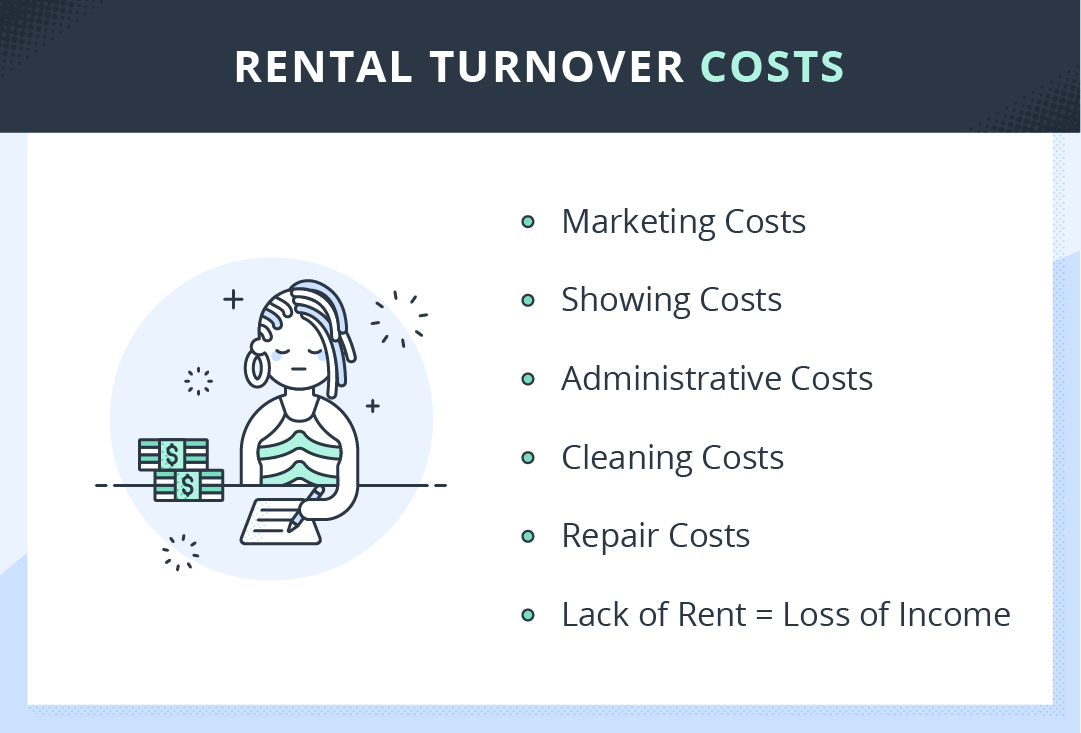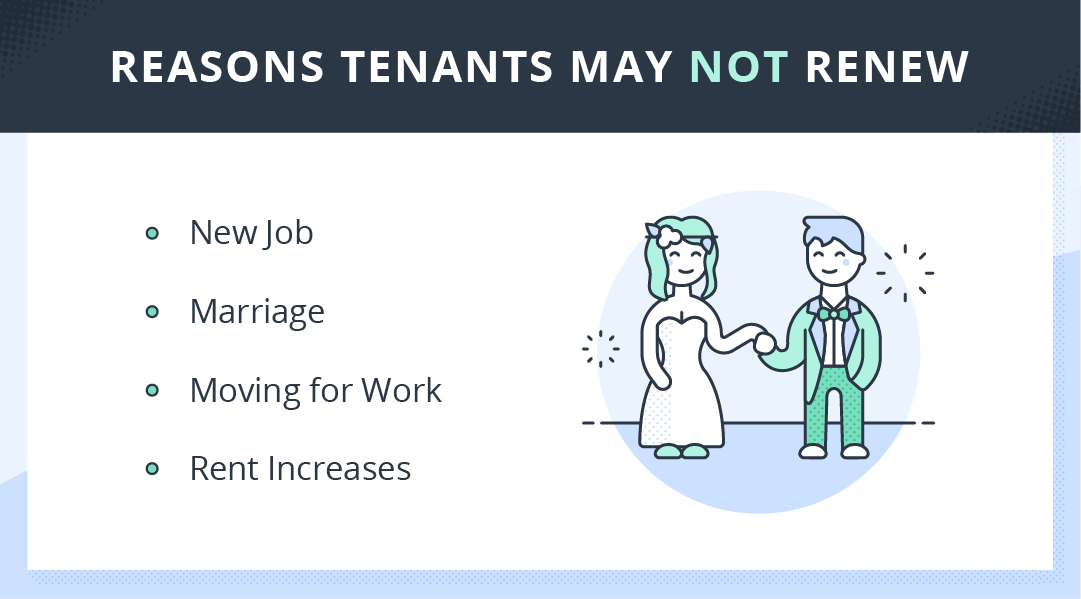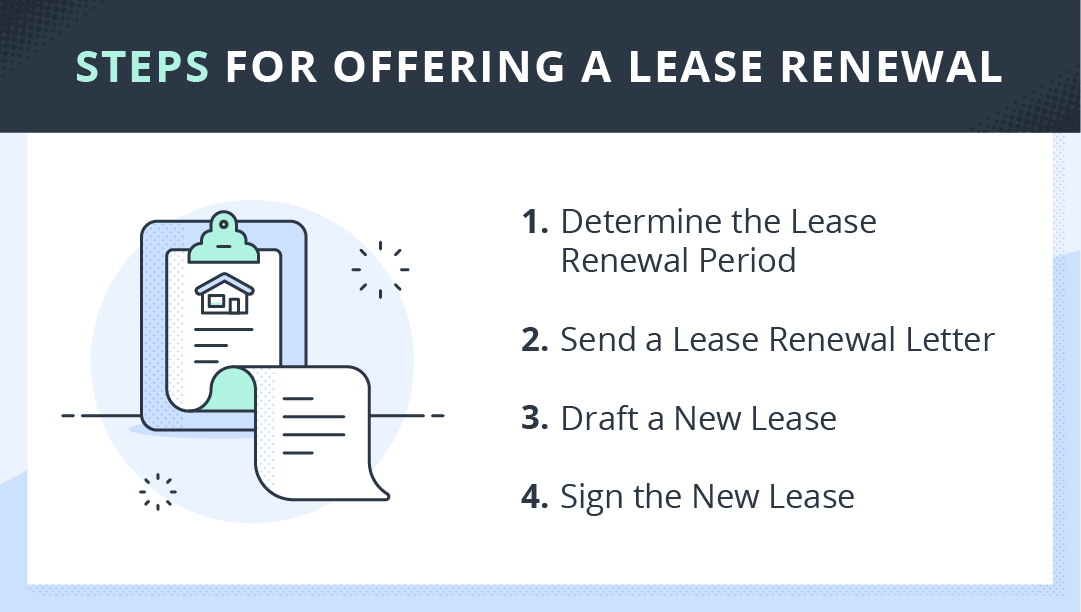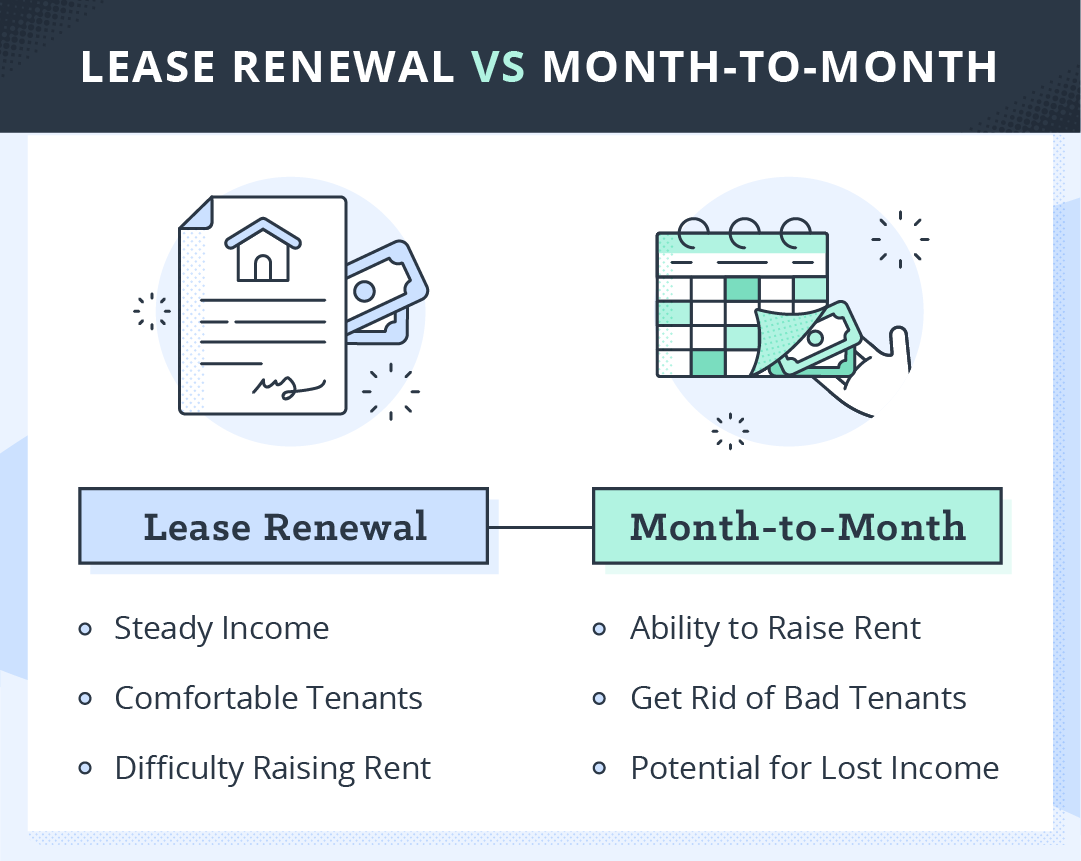4 min read
Meet the TurboTeam: Goran Maksimovic
And then you realize that the people are your source that you’re learning from. And the people keep you in company and...

Long-term rental properties can have many advantages, like an extended lease length that provides a constant cash flow for landlords. However, all leases must come to an end, which means learning how to properly go through a lease renewal is an important part to being a landlord. A lease renewal is defined as an option for the current tenant to continue living in a rental property for a specified time period which is agreed upon by both parties – it also outlines certain rules and conditions regarding the property. According to Rental Housing Journal, 62.7% of renters renewed their leases in 2022.
If you’ve secured a great tenant who you get along with, treats your property nicely, pays rent on time, and hasn’t given you any trouble, you’ll probably want to seek a lease renewal with them as soon as possible. On the other hand, not seeking a lease renewal with some tenants is a great way to find a renter who is better suited for your property.
We’ve compiled the ultimate guide to help landlords navigate the lease renewal process in order to answer any and all questions you might have – check it out, or quickly jump to a section below:
As with many things, there are both pros and cons to a lease renewal for you and your tenants. Whether you want to renew leases for multiple tenants or just one, it comes down to determining what the best option is for you and your rental property at the time.
While there are many free tools to help you find new tenants, rental turnover still has a high cost attached to it. The cost of tenant turnover is both a financial and timeliness one – for example, advertising, maintenance and cleaning costs can add up. Here is a helpful breakdown of typical costs during rental turnover:

While you might have the perfect tenant staying in your rental, some tenants might not accept your lease renewal offer for a variety of reasons. Many times tenants don’t seek lease renewals for lifestyle changes, such as, they get married, get a new job or are moving somewhere closer to their families or work – they might even be moving out of state.

Life happens, so staying flexible and understanding in this situation is in everyone’s best interest. It’s also important to remember they don’t owe you an explanation on why they’re not renewing their lease with you. If they aren’t renewing their lease for such lifestyle changes, you should remember this if they need a landlord recommendation later on down the road – if they were a good tenant then it is always a courteous thing to do.
If you eventually need to find a new tenant – don’t worry. There are many outlets and tools to use these days that will easily help you find tenants who will fit well with you and your rental property.
Tenant screening is an essential step in the search process. You want to ensure you know exactly who you are renting to as you want to be positive they will be a safe and trustworthy individual. Tenant screening can include many things from hard data to soft attributes and qualities like the following:

While it might seem like a simple process there is a proper way to offer a lease renewal to your tenants. You want to be as professional as possible while giving ample time and consideration for your tenant to decide what to do. Here is a quick guide on how to offer a lease renewal:
Generally, the lease renewal notice period should be 90 days before the current lease expires to give a good amount of notice for both you and the renter.
A professional lease renewal letter is a great way to communicate with your tenant about their options; it should include when the current lease expires, what the new lease’s time period would be, and the rent price (whether it’s the same or increasing). For example:
Dear (TENANT),
I want to let you know your current lease will expire mm-dd-yyyy! I have thoroughly enjoyed having you as my tenant and you’ve been a great renter. I want to offer you another (one-year, six-month, etc.) lease at the rate of $/month. Please let me know if you are interested by mm-dd-yyyy – if so, I’d be happy to send you the new lease and answer any questions you might have. Thank you so much – I look forward to hearing from you.
Best,
(NAME)
Even if you only want to make minor adjustments, a new lease agreement is necessary for both parties. Write and update your lease to include any changes including policies, rent terms, rent prices and any other information you want to update. It is also important to check state-by-state laws and lease inclusions that may be necessary.
Remember, nothing is binding until both parties have signed the new lease! Send the new lease to your tenant and once they review and approve you both can sign and file away until next year.
The lease renewal process can be quick and efficient if done properly. There are, however, many factors and additional options for landlords to think about before and after the process.
It’s important to recognize a lease renewal is not always a black and white process. While it’s true it can be simple, there are additional factors to consider for the future of your property.
Sometimes the tenant you selected to live in your rental was more difficult to get along with than anticipated, caused issues with neighbors, damaged the property or didn’t pay rent on time. In this scenario, a lease renewal might not be the best option. Instead, you could take the lease expiration as an opportunity to find a renter who will be better suited to your property.
Whether you’re leasing to inherited tenants, or you’ve decided that keeping your current tenants is of high value for you and your property long-term, you could consider lowering the rent or keeping it the same. On the other hand, sometimes the market may call for an increase in your rent prices. In this case, being open and honest to your tenants about this change might still encourage them to stay. You could also consider sending a rent increase letter to be as professional and transparent as possible.

If you aren’t necessarily looking for a long-term tenant or your tenant is unsure about their time frame, a month-to-month lease is another option. There are pros and cons to both a lease renewal versus opting for the month-to-month option.
Some things to remember with a month-to-month lease: you can and should raise the rent since it is such a flexible and less-secure option, it’s usually only for a brief period of time and it will expire upon 30 days notice from either party. A lease renewal, however, will provide more stability as it is usually a long-term agreement for one-year or more.
As a landlord, it is important to stay up-to-date on the current rental value of your unit. How do newer units in your neighborhood compare to yours? Furthermore, have you made any updates to your unit that would put it at a higher value? All of these things are important to consider if you want to get the most out of your investment. The rental market can change frequently, so being informed will help determine if you need to lower or raise the rent to make a fair and good profit.
Below are some common questions you might have about lease renewals or the lease renewal process.
No, a landlord does not have to renew a lease with the same tenant if the current lease has expired. If a tenant asks to renew their lease, you can tell them you are not offering renewals at this time – sending a lease renewal rejection letter is not required, but a courteous thing to do.
When a lease expires, the tenant is required to move out based on the ramifications of the original lease. If they did not accept the lease renewal they must move out, so your future tenants can move into the property.
An automatic lease renewal is a lease period that renews every month, every six months or every year for the same amount of time. This arrangement can continue on until a landlord or tenant ends the lease.
Sometimes tenants might negotiate maintenance updates like painting or new appliances in order for them to sign another lease with you. Investing time to update your unit would be beneficial for the future, but you could negotiate back a longer lease renewal, such as two years, for those updates.
A lease renewal is a very important process and should not be overlooked. Going through the process properly and professionally will be beneficial for both you and your renter – and, you might end up finding the perfect tenant. Lease renewals will enable you to keep good renters who are already familiar with the lease terms, save time and money from having to fill vacancies and increase the potential for a long-term renter. On the flip side, you might have limited options to do renovations, have more difficulties raising rent and might let your rules slide a little bit after getting comfortable with the tenant.
Finding ideal tenants from the start with the use of online rental applications and tenant screening will make the lease renewal process much easier and filling vacancies easier if necessary. If you’re looking to fill a vacancy or learn more about online rental applications, TurboTenant can help you with the process.
4 min read
And then you realize that the people are your source that you’re learning from. And the people keep you in company and...
5 min read
We have this really good integration. We make them feel like they are part of the company....but it’s like we also make...
4 min read
Well, I guess the thing that pops into my mind right now is you have a lot of freedom to do things...
Join the 700,000+ independent landlords who rely on TurboTenant to create welcoming rental experiences.
No tricks or trials to worry about. So what’s the harm? Try it today!